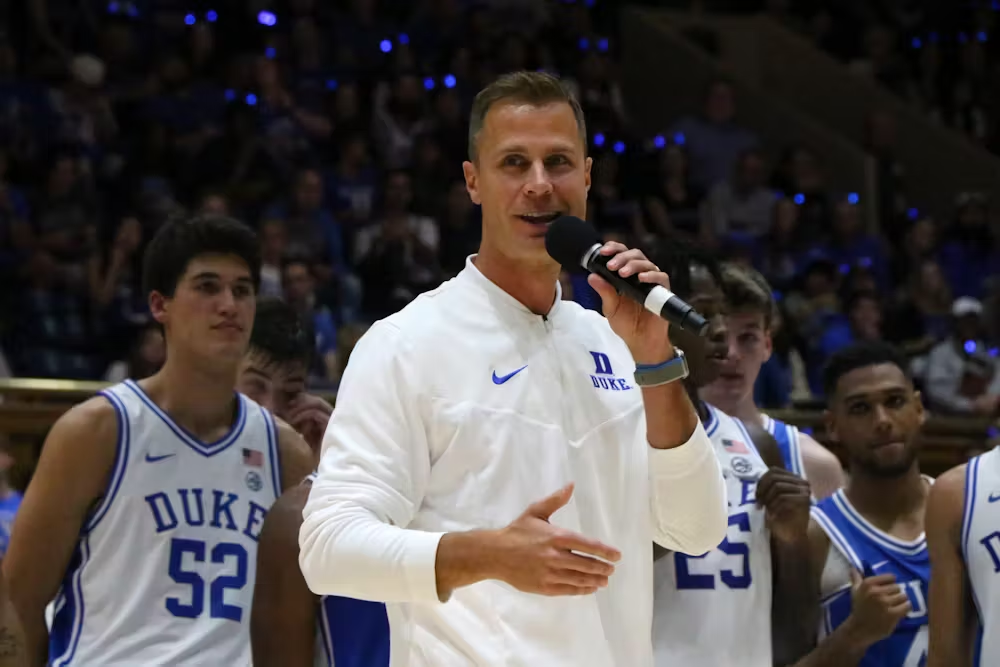
The announcement of Jon Scheyer decision came as a surprise to many fans…
The announcement of Jon Scheyer’s decision came as a surprise to many fans, marking a pivotal moment in the realm of collegiate basketball. With the retirement of legendary coach Mike Krzyzewski from Duke University, speculation had been rampant about who would succeed the iconic figurehead of the Blue Devils. Jon Scheyer, a former player under Coach K and a respected member of the Duke basketball community, emerged as the unexpected choice to carry forward the program’s legacy.

Scheyer’s journey to this moment was marked by dedication and achievement. As a player, he contributed significantly to Duke’s success, showcasing both skill and leadership on the court. His transition from player to assistant coach under Krzyzewski further solidified his understanding of the Duke basketball ethos and its traditions. Over the years, he garnered respect not only for his basketball acumen but also for his ability to inspire and lead.
The news of Scheyer’s appointment reverberated through the world of sports, triggering a wave of reactions from fans, analysts, and alumni alike. Many praised Duke’s decision to entrust the program to someone who embodied the spirit of Duke basketball—a blend of excellence, integrity, and passion. Others expressed surprise at the timing and the choice, given Scheyer’s relatively young age and limited experience as a head coach at the time of his appointment.

However, Scheyer’s ascent to the head coaching position was not merely a stroke of luck or timing. It was a testament to Duke’s commitment to continuity and to preserving the values instilled by Krzyzewski over his illustrious career. Scheyer himself acknowledged the weight of the responsibility, recognizing the legacy he was inheriting and the expectations that came with it.
In assuming the role, Scheyer faced numerous challenges. Apart from the pressure of following in the footsteps of a coaching legend, he had to navigate the competitive landscape of collegiate basketball and maintain Duke’s status as a perennial powerhouse. His ability to recruit and develop talent would be closely scrutinized, as would his strategic decisions on and off the court.
For Duke fans, Scheyer’s appointment represented both continuity and change. While the departure of Krzyzewski marked the end of an era, Scheyer’s promotion signaled a new chapter—one that promised to build upon the foundation laid by his predecessor while also forging his own path. The announcement sparked renewed interest in Duke basketball, with anticipation running high for Scheyer’s debut season and the direction he would steer the program.
As the season unfolded, Scheyer’s leadership and coaching style began to take shape. His emphasis on teamwork, discipline, and a strong work ethic echoed the principles that had defined Duke basketball under Krzyzewski. Gradually, he earned the respect and admiration of players, fans, and analysts alike, proving himself capable of guiding Duke through the transition and maintaining its competitive edge.
In conclusion, Jon Scheyer’s unexpected appointment as head coach of Duke basketball marked a significant moment in the sport’s history. It symbolized a passing of the torch from one era to the next while embodying the enduring spirit and values that define Duke University and its basketball program. As Scheyer continued to make his mark on the sidelines, his journey from player to coach served as an inspiration and a testament to the power of dedication, perseverance, and a deep-seated passion for the game.







